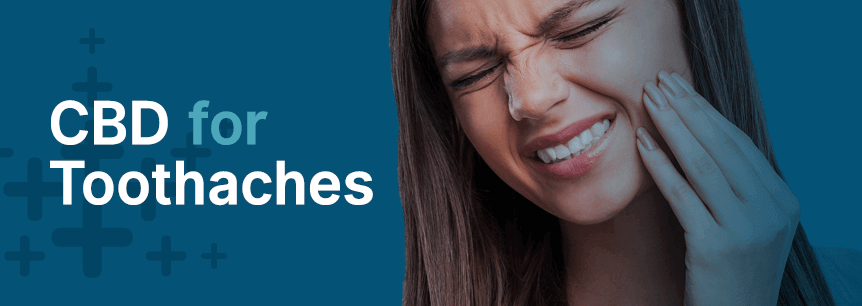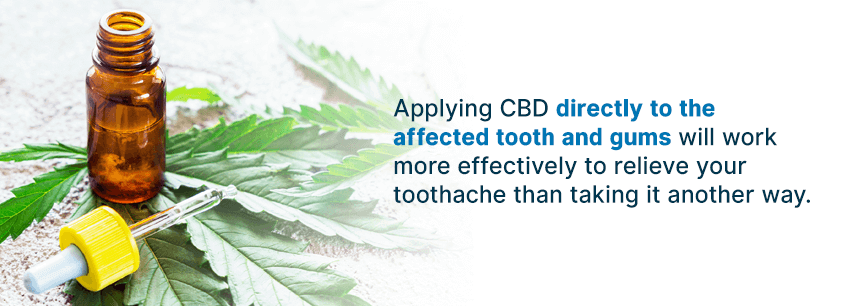
Discussions of the health benefits of cannabinoids like cannabidiol (CBD) most often center on chronic conditions, including chronic pain, epilepsy, multiple sclerosis and Parkinson’s disease. But they can also be used to relieve everyday ailments like toothaches. Answers to these common questions can help you learn more.
Most toothaches happen because of pulpitis, an infection in the tooth. The pulp is the soft area in the center of the tooth that contains nerves and blood vessels. We can feel heat, cold and touch in our teeth because of the pulp in them. The pulp also causes pain when it becomes injured or infected.
Pulpitis can occur because of:
In some cases, pain felt in the tooth comes from pain in another part of the body. For example, earaches and sinusitis pain can also lead to tooth pain.
CBD reduces pain and inflammation in an affected tooth by interacting with cannabinoid receptors. Some of these receptors have a link to the immune system and lower its response when they come in contact with CBD. Since our bodies create inflammation for immune purposes, the CBD reduces the inflammation they make—easing the pain and swelling associated with a toothache in the process.
We always recommend visiting a medical professional if you have a long-lasting or severe toothache. You can use CBD to make toothache pain more manageable, but only a dentist can address the cause.
Many new patients feel hesitant to take marijuana medicine because they worry about impairment. But only some components of marijuana create this feeling, and CBD isn’t one of them. It may make you calm or sleepy, but it does not produce psychoactive effects.

These kinds of CBD medicine can efficiently reduce toothache pain and swelling:
If you don’t know which method will work best for you, talk to your dentist or a cannabis-positive doctor.
Marijuana laws in the United States can be confusing. If the CBD is extracted from hemp plants, it’s legal in every state but may not contain a sufficient level of CBD for medical purposes. If the CBD comes from a marijuana plant, it’s illegal on a federal level but can be purchased in 33 states, districts and territories with a recommendation from a doctor. We recommend getting it from a dispensary if possible since many of them monitor the content of their products. CBD can also be purchased in states where recreational marijuana is legal if you’re 21 or older. If you live in a state that permits ordering CBD online and you have no other option, choose your store with care. Read through reviews and check the contents of every product.
CBD and other cannabinoids can cause dry mouth, especially when inhaled or ingested. The compound interacts with cannabinoid receptors in the salivary glands, inhibiting the secretion of saliva. That’s a problem because saliva has an important role to play in cleaning your teeth, keeping their minerals strong and preventing cavities.
Fortunately, dry mouth from medical marijuana has simple fixes. You can drink more water or use a mouthwash meant to increase saliva production. Gum that contains xylitol also increases the amount of saliva in your mouth. To be avoided: coffee, tea and alcohol, which also dry out your mouth.
Medical professionals in many disciplines, including dentistry, get certified to provide recommendations and give advice on medical marijuana. Use our doctor database to find one by using the “Specialty” filter along with the “Location” and “Distance” options.
No Information on MarijuanaDoctors.Com should be used to diagnose, treat, prevent or cure any disease or condition. You can view our Full Disclaimer here.